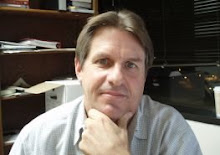2011 is the year for Regional Revitalization and Empowerment Strategies.
Empowerment involves helping people to realize their own abilities to be the masters of their own destiny, to make dreams come true. The best toolset I have found so far is Desmond Green's The Practice. It is the first of two books in this book The Global Citizenship Passport. Download it for FREE!http://jamaicaselfmanagementinstitute.yolasite.com/resources/GlobalPassportDesmondDGreen002.pdf
From the
Jamaica Self Management Institute The Regional and Community Empowerment Project – Colombia
The Regional and Community Empowerment Project – Colombia
By Andrew N. Skadberg, Ph.D.
This abstract was recently accepted for the conference
Tourism Progress and Peace. I see the pieces of this puzzle coming together very nicely, as this has been a dedicated effort to develop over the last 22 years. So, in the interests of gaining supporting energies, I am posting this description here to make it known to the world, so to speak. There is much more already written about the details, and the various components are being built and could become a very lengthy blog, but this will provide a nice summary for those who might be curious about what I have been working on for the last 3 years.
No matter what happens I am grateful to Sandy Dhuyvetter of
TravelTalkMedia for "lighting this fire". Also, to my friend Desmond Green who is my co-creator of some beautiful opportunities brewing in Jamaica. There are many more to thank, but for the time being this will suffice.
Abstract
Tourism in Colombia has vast potentials. However, one of the most significant challenges is the stigma of Colombia being a risky place to travel that has been created via mainstream media. Another challenge is shifting the Colombia people’s mindset as they too have been influenced by what some have called a “culture of violence”. The aim of the project currently underway in Colombia is to develop strategies to grow tourism and economic opportunities via what we term “revitalization and empowerment”, which involves diversification and strengthening of regional and community economies. Currently underway is a grass-roots strategy for empowering regions and people to develop tourism and other complimentary industries (e.g. agriculture, arts and music, entrepreneurship). Foundational principles build on creating educational platforms and utilizing individual and community empowerment strategies. An additional imperative is a strong foundation on environmental awareness and protection. To accomplish this multi-faceted approach involves educating people about the criticality of the human-nature relationship, and the utilization of remote-sensing sciences for identifying and ameliorating environmental challenges and threats.
The Regional and Community Empowerment Project (RCEP) is comprised of three primary “Initiatives” 1) Education, 2) Branding/Marketing, and 3) Developing New Technologies.
Initiative I – Education: Creating the Tourism, Agricultural and Community Economic Diversification Institute—the “TACED Institute” for tourism and value-added agricultural technical assistance.
The TACED Institute provides access to information and technical assistance with an entrepreneurial focus. The TACED Institute supports holistic economic development strategies focused on tourism, innovation in agriculture and small business development. Additionally the TACED Institute provides on-site, hands-on training seminars to local “trainers” to create a network of “tech-transfer associates” throughout regions. The initiative partners with regional organizations and businesses to develop educational outreach programs.
Initiative II – Branding/Marketing: “Experience Your Region” regional tourism destination branding (national and internationally marketed). – the actual “brand/trademark” will be developed from the initiative itself.
Regional branding is marketed both nationally and internationally as “Experience Your Region”, as experiential tourism destination(s). The purpose of this initiative is to expand experiential tourism in the region based on existing tourism attractions and those developing, in addition to the existing and developing infrastructure.
Initiative III Developing New Technologies: Supporting both the Education and Marketing aspects of the RCEP are access portals for people and communities in Colombia, and for international travelers to find travel opportunities.
The purpose of these new technologies is to provide: 1) a complete “package” of answers to questions that traveler’s might have, 2) customized information about the places they are/will be traveling, and 3) support for rural communities and small businesses to market themselves. Additional technologies support the creation of a “virtual” university providing practical education tools, including, initially 1) English, 2) tourism, and 3) entrepreneurship. The final element of technology development is the utilization of remote-sensing, and spatial sciences for more effective planning and for creating viable solutions for environmental impacts that are ubiquitous in nearly all places where development has occurred.



